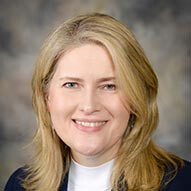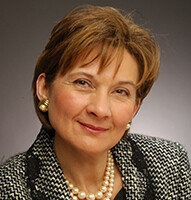Psychosis in children
Psychosis is a mental illness that causes your child to lose touch with reality. This means they could see or hear things that aren’t really there or believe in things that aren’t real. Our team, at Children's Health℠, uses the latest treatments – tailored to your child’s needs – to help your child’s thinking improve and help stabilize their emotions.
What is psychosis in children?
Psychosis is a mental health condition that affects how your child’s brain understands information. Your child might say they can see or hear things others can’t. They may also have unusual beliefs or perceptions that are far outside reality.
What are the different types of psychosis in children?
Psychosis happens for different reasons. Types of psychosis in children include:
Psychosis caused by schizophrenia - Schizophrenia, a mental health illness that affects how people think, feel and behave, can cause psychosis. When children have psychosis caused by schizophrenia, they often experience delusions (believing in things that aren’t real), hallucinations (seeing, feeling or hearing things that aren’t there) and have unusual and unpredictable thoughts (like thinking they’re communicating with characters from books or movies).
Psychosis due to a substance - Psychosis can be a side effect of prescribed medications or can be caused by illegal drugs. We’ll do a thorough evaluation to understand if the medications or substances your child is taking may be causing psychosis.
Psychosis related to mood disorders - Some mood disorders (like bipolar disorder) can cause psychosis. If that’s the case, your child might suffer from hallucinations or delusions. However, not every child with a mood disorder will experience psychosis.
Psychosis with a developmental feature - Severe illnesses or injuries may cause a child to develop psychosis. For example, an infection in the brain or a brain injury may cause behavior and thought changes in a child. This could lead them to hear, see or believe in things that aren’t real.
What are the signs and symptoms of psychosis in children?
Common symptoms of psychosis in children include:
Unusual beliefs or believing in things that are far outside the ordinary
Hearing things other people can’t hear
Seeing things other people can’t see
Changes in a child’s facial expressions
Trouble communicating
Lack of interest in activities or hobbies
How is psychosis in children diagnosed?
To diagnose psychosis, we first need to understand when and how it started. This will help us understand your child’s symptoms and rule out other conditions.
If your child's doctor thinks they may be experiencing psychosis, they will typically:
Ask you and your child about recent changes in your child's perceptions or unusual beliefs
Ask if your child has had any hallucination experiences
Ask about changes in your child’s behavior
Ask about your family's medical and mental health history
Complete a medical examination to rule out other medical conditions
Possibly use brain imaging or other tests to confirm that there are no underlying medical conditions
What causes psychosis in children?
It’s hard to know what causes psychosis in a particular child. It may be caused by (or related to) another illness or injury, substance abuse (like using drugs or alcohol) or genetics.
How is psychosis in children treated?
The most effective treatment for psychosis is a combination of medication and therapy.
Medications called antipsychotics help decrease delusions and hallucinations, while improving your child’s motivation and emotional well-being.
We can also do one-on-one therapy sessions with your child or therapy sessions for your whole family. This helps us learn more about what your child and your family is going through so we can find ways to help.
Psychosis in children doctors and providers
We have psychologists, psychiatrists and therapists on our team.
 Urszula Kelley, MDPediatric Psychiatrist
Urszula Kelley, MDPediatric Psychiatrist Medha Iyer, MDPediatric Psychiatrist
Medha Iyer, MDPediatric Psychiatrist Jane Miles, MDPediatric Psychiatrist
Jane Miles, MDPediatric Psychiatrist James Norcross, MDPediatric Psychiatrist
James Norcross, MDPediatric Psychiatrist Laura Stone, MDPediatric Psychiatrist
Laura Stone, MDPediatric Psychiatrist Kristin Scott, PhDPediatric Psychologist - Foster Care
Kristin Scott, PhDPediatric Psychologist - Foster Care